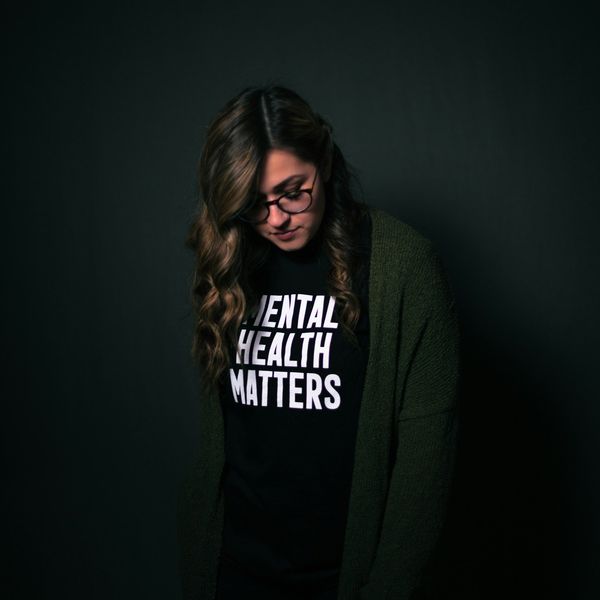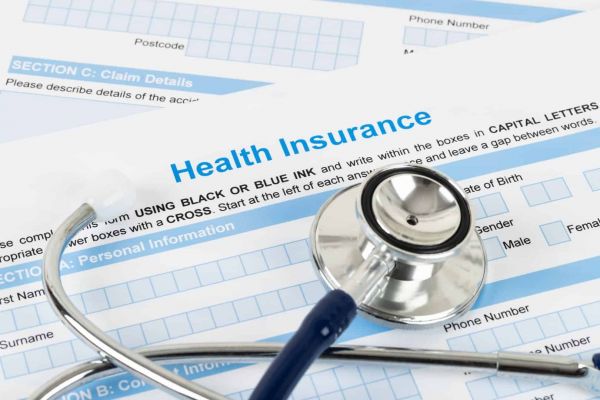Bipolar Recovery Options For Individuals in Nashville, Tennessee
Bipolar Disorder Treatment Options
in the Nashville, Tennessee Area
in the Nashville, Tennessee Area
Discover comprehensive bipolar disorder treatment options in the Nashville, Tennessee area with Freeman Health Partners. Our expert team provides personalized care, offering both mental health and primary care services, including dual diagnosis support for co-occurring conditions. Learn how we utilize holistic therapy programs to help you achieve lasting stability and wellness.
Freeman Health Partners provides programs for mental health, dual diagnosis, and primary care services. Our team is dedicated to offering individualized treatment plans that address a wide range of conditions, ensuring holistic care for your mental health and overall wellness.

What is Bipolar Disorder?
Bipolar disorder is a mental health condition defined by extreme mood swings, ranging from depressive lows to manic or hypomanic highs. These mood shifts can affect your energy, activity levels, and ability to carry out day-to-day tasks, making it essential to manage the disorder with proper treatment.
There are different types of bipolar spectrum illness, including Bipolar I, Bipolar II, and Cyclothymic Disorder, each with varying degrees of severity. Symptoms may include feelings of euphoria, irritability, and impulsivity during manic episodes, contrasted by hopelessness, fatigue, and sadness during depressive periods. Proper diagnosis and treatment, often involving therapy and medication, can help stabilize these mood swings and improve overall functioning.
Common Bipolar Disorders
There are several types of bipolar spectrum disorders, each with unique symptoms and patterns of mood changes. Below are some common forms of bipolar disorder, though this list is not exhaustive. Understanding the different types is key to receiving a proper diagnosis and personalized treatment plan. Let’s explore some of the most recognized categories:
Bipolar I Disorder
Bipolar I Disorder is defined by the presence of at least one manic episode, which may be preceded or followed by hypomanic or depressive episodes. Manic episodes involve elevated mood, high energy, and impulsive behavior that can last for a week or more. These episodes can significantly disrupt daily functioning and may require hospitalization.
Bipolar II Disorder
Bipolar II Disorder is characterized by recurring episodes of depression and hypomania, a less severe form of mania. Unlike Bipolar I, people with Bipolar II never experience full manic episodes. Instead, they experience periods of elevated mood and energy that are milder but still disruptive, followed by depressive episodes that can be severe and persistent, impacting daily life and emotional well-being.
Rapid-Cycling Bipolar Disorder
Rapid-Cycling Bipolar Disorder is a subtype in which a person experiences four or more distinct mood episodes—manic, hypomanic, or depressive—within a year. These episodes can occur in any combination and may shift quickly, making the bipolar mood disorder more challenging to manage. Rapid cycling can lead to increased emotional instability and often requires more intensive mental health treatment to stabilize mood swings.
Cyclothymic Disorder
Cyclothymic Disorder is a milder form of bipolar illness marked by chronic mood fluctuations. You experience periods of hypomanic symptoms and depressive symptoms that are less severe than those seen in Bipolar I or II. These mood changes persist over at least two years, with episodes being less intense but still disruptive to daily life.
Substance-Induced Bipolar and Related Disorder
Substance-Induced Bipolar and Related Disorder occurs when mood disturbances, such as manic, hypomanic, or depressive episodes, are triggered by substance use, including drugs, alcohol, or medication. The mood changes are directly related to intoxication or withdrawal and can mimic bipolar affective disorder symptoms, requiring behavioral health treatment that addresses both the substance use and mood regulation.
Bipolar Disorder Not Otherwise Specified (NOS)
Bipolar Disorder Not Otherwise Specified (NOS) is diagnosed when a person experiences symptoms of bipolar symdrome that don’t clearly fit into the defined categories of Bipolar I, Bipolar II, or Cyclothymic Disorder. You may have mood swings or abnormal mood patterns, but the episodes may not meet the full criteria for a specific type.
Check Your Insurance Coverage Levels
At Freeman Health Partners, we understand the financial concerns that accompany the decision to seek mental health and primary care services. That’s why we’re committed to making our services as accessible as possible by accepting most major insurance providers in Tennessee. This includes Aetna, Carelon, Blue Cross Blue Shield, Cigna, and Humana.
Our goal is to ensure that everyone who needs our help can receive it, regardless of their insurance coverage. We encourage you to take the first step towards better mental health by filling out our online form. This will allow us to determine your health insurance coverage levels for mental health and primary care services. By understanding what services your insurance covers, you can start your journey with confidence, knowing that you have the financial support you need.




Check Your Insurance by Phone
Find out your health insurance coverage levels for by calling the number below.
What are Signs and Symptoms That Someone Has Bipolar?
Signs and symptoms of bipolar disorder include extreme mood swings between manic or hypomanic highs and depressive lows. These shifts can impact energy, behavior, and thinking, making it difficult for you to maintain stability in your personal and professional life. Early identification of these patterns is key to seeking appropriate treatment.
During manic episodes, symptoms can include elevated mood, increased energy, impulsive behavior, racing thoughts, and a decreased need for sleep. In contrast, depressive episodes may present with intense sadness, fatigue, feelings of worthlessness, difficulty concentrating, and loss of interest in activities. Other signs may include irritability, restlessness, and changes in appetite.
Common signs of bipolar disorder include:
- Extreme mood swings
- Decreased need for sleep during manic phases
- Prolonged periods of sadness or depression
- Racing thoughts or impulsive decisions
- Difficulty maintaining relationships or work responsibilities
- Irritability or agitation
- Unexplained fatigue or low energy during depressive episodes
Middle Tennessee and its Most Visited Local Attractions and Landmarks
Middle Tennessee offers a rich tapestry of attractions and historic landmarks. Nashville boasts the Grand Ole Opry and Ryman Auditorium, celebrating its musical heritage, while the Country Music Hall of Fame and Museum and Bridgestone Arena enhance the city’s vibrant cultural scene. Nature lovers can visit the Nashville Zoo at Grassmere or Cheekwood Botanical Garden and Museum of Art.
The Bell Witch Cave and Andrew Jackson’s Hermitage add historical intrigue, and landmarks like Belle Meade Historic Site and the Parthenon showcase the region’s diverse past. Explore Cumberland Caverns, Old Stone Fort State Archaeological Park, and Montgomery Bell State Park for outdoor adventures, and enjoy cultural sites like the Frist Art Museum and Tennessee State Museum.
Can You Cure Bipolar Disorder?
Bipolar disorder cannot be cured, but it can be effectively managed with a combination of treatments. The goal of treatment is to stabilize mood swings, reduce symptoms, and improve overall quality of life. With proper care, people with bipolar emotional disorder can lead fulfilling and productive lives.
Manic depression management typically involves a combination of medication and psychotherapy. Medications, such as mood stabilizers and antipsychotics, help regulate mood swings and prevent relapse. Psychotherapy, including cognitive behavioral therapy (CBT), talk therapy, and psychoeducation, provides support and strategies for coping with the disorder. Regular monitoring and a strong support system are also crucial in managing the condition effectively.
It’s important to work closely with healthcare professionals to develop a personalized mental health treatment plan. While bipolar disorder may require ongoing management, many people find that with the right strategies and support, they can achieve significant improvement and stability. Contact us at Freeman Mental Health today to learn more.

Treatment Program Options for Bipolar Disorder
Treatment programs for bipolar disorder are set up to address the varying needs of individuals based on the severity and complexity of their condition. These programs offer structured support and tailored interventions. Explore the different options available, including intensive outpatient programs, outpatient programs, partial hospitalization programs, and residential treatment, to find the best fit for effective management.
Intensive Outpatient Program for Bipolar Disorder
An Intensive Outpatient Program (IOP) for bipolar disorder provides a structured treatment environment while allowing you to live at home. This program offers intensive psychodynamic therapy sessions several times a week, including individual therapy and group counseling, medication management, and skills training. It’s ideal for those needing focused support without 24-hour residential care.
Outpatient Program for Bipolar Disorder
An outpatient program for bipolar disorder offers flexible treatment options that allow you to attend therapy sessions while continuing their daily routines. This program includes regular counseling, medication management, and support groups. It is suitable for those who need ongoing care and support but do not require intensive or residential treatment.
Partial Hospitalization Program for Bipolar Disorder
A Partial Hospitalization Program (PHP) for bipolar disorder provides a higher level of care than traditional outpatient programs but does not require full-time residential stay. Patients participate in intensive trauma therapy sessions, including individual and group counseling, and receive medication management during the day. PHP is ideal for those needing structured support while returning home each evening.
Residential Treatment for Bipolar Disorder
Residential treatment for bipolar disorder offers 24-hour care in a dedicated facility, providing a structured environment for intensive therapy. This option includes comprehensive treatment plans with individual and group therapy, medication management, and life skills training. It is suited for those requiring immersive support and stability to manage severe symptoms and achieve lasting progress.
What Should I Expect From The Bipolar Disorder Treatment Admissions Process?
The admissions process for bipolar disorder treatment programs is structured to provide you with the necessary care and support tailored to your needs. Although each treatment center may have its own procedures, the general process typically includes the following steps:
- Initial Contact: The process begins with reaching out to the treatment center, either through a phone call, email, or online form. During this stage, you will discuss your concerns and gather preliminary information about the program.
- Assessment and Evaluation: Next, a comprehensive assessment is conducted to evaluate your mental health condition, including a detailed review of your symptoms, medical history, and any substance use issues. This evaluation helps determine the most appropriate level of care.
- Insurance Verification and Coverage: The treatment center will then verify your insurance coverage to confirm what services are covered under your plan. This step ensures that you understand your financial responsibilities and what expenses will be covered.
- Treatment Plan Development: Based on the free assessment, a personalized treatment plan is created. This plan outlines the specific therapies, medications, and support services you will receive during your treatment.
- Admissions Coordination: After finalizing the treatment plan, the admissions team coordinates your entry into the program. This includes setting start dates and arranging any necessary paperwork or pre-admission requirements.
- Orientation and Program Introduction: Upon admission, you will go through an orientation to familiarize yourself with the treatment center’s facilities, staff, and program structure. This step helps you understand what to expect and how to navigate the program effectively.
- Active Participation in Treatment: During your time in the program, you will actively engage in the treatment plan, which includes attending therapy sessions, taking prescribed medications, and participating in support groups.
- Progress Monitoring and Adjustments: Throughout the treatment process, your progress will be monitored regularly. Adjustments to the treatment plan may be made as needed to ensure that the care provided remains effective and responsive to your evolving needs.
How to Find a Bipolar Treatment Center in Middle Tennessee
Finding the right bipolar treatment center in Middle Tennessee is crucial for managing the condition effectively. Freeman Health Partners offers specialized care for bipolar disorder, providing comprehensive treatment options tailored to your needs. Our experienced team is dedicated to helping you navigate the process of getting treatment for bipolar disorder, from your free initial mental health assessment to ongoing support.
To get started and learn how to get treatment for bipolar disorder, you can call us directly at (615) 879-3582 or contact us here. Our team will assist you in understanding your treatment options and creating a personalized plan to manage bipolar disorder effectively.

Other Ways to Find Bipolar Treatment Near Me
To locate bipolar disorder treatment programs near you that offer services like therapy, psychiatric care, and community mental health support, consider these strategies:
- Online Search Engines: Use search engines such as Google, Bing, or Yahoo to look up terms like “bipolar disorder treatment near me” or “mental health counseling services in my area.”
- Local Directories: Browse online local directories like Yelp, Yellow Pages, or the Better Business Bureau to find listings for bipolar disorder treatment programs in your city.
- Healthcare Provider Websites: Visit the websites of major hospitals and medical centers nearby. They often provide detailed information about their mental health services and available clinics.
- Insurance Provider’s Directory: Check your health insurance provider’s website for a directory of in-network bipolar disorder treatment providers, helping you find covered options.
- State and Local Government Resources: Look up resources and directories on state and local government websites or mental health agencies.
- Mental Health Organizations: Explore regional mental health organizations’ websites for information on local services and facilities.
- Ask for Referrals: Consult with your primary care physician, therapist, or mental health professional for recommendations on reputable treatment programs.
- Support Groups: Attend local support groups for mental health or behavioral health needs, where members may share information about treatment resources.
- Read Reviews and Ratings: Search for online reviews and ratings of mental health programs to assess the quality of care provided.
Check Your Insurance for Bipolar Therapy
Find out your health insurance coverage levels for by calling the number below.
Does Insurance Cover Treatment for Bipolar in the Nashville, Tennessee Area?
Yes, insurance typically covers bipolar treatment in Nashville, Tennessee. Most health insurance plans, including private, Medicaid, and Medicare, provide coverage for bipolar psychiatric conditions, including mania-depression disorder. This often includes therapy, medication management, and hospitalization, depending on the severity of the bipolar mood swing disorder and individual insurance policies.
Coverage can vary, so it’s important to check with your provider to understand what is included for bipolar mental health conditions and mood instability disorder. Many treatment centers in Nashville, like Freeman Health Partners, work with insurance companies to offer comprehensive care for managing bipolar symptoms, such as therapy, counseling, and medication.

Therapy and Counseling Options for Bipolar Disorder
Various therapy and counseling options are available to help manage bipolar disorder, offering tailored approaches to meet your needs. Below are some examples of effective treatments, including group therapy, Dialectical Behavior Therapy (DBT), Cognitive-Behavioral Therapy (CBT), and more. These are not exhaustive, but they highlight key strategies used to support long-term wellness.
Group Therapy for Bipolar Disorder
Group therapy for bipolar disorder provides a supportive environment where you can share experiences and coping strategies with others facing similar challenges. Led by a therapist, these sessions promote mutual understanding, reduce isolation, and offer peer support. Group therapy helps you develop communication skills, gain new perspectives, and learn effective techniques for managing mood swings.
Dialectical Behavior Therapy (DBT)
Dialectical Behavior Therapy (DBT) is an evidence-based treatment that helps people with bipolar disorder manage intense emotions and improve relationships. DBT combines mindfulness practices with cognitive-behavioral techniques to teach skills in emotional regulation, distress tolerance, and interpersonal effectiveness. It is particularly effective in reducing impulsive behaviors and promoting emotional stability in those with bipolar disorder.
Cognitive-Behavioral Therapy (CBT)
Cognitive-Behavioral Therapy (CBT) is a widely used approach for treating bipolar disorder that focuses on identifying and changing negative thought patterns and behaviors. Through CBT, you’ll learn coping strategies to manage mood swings, challenge distorted thinking, and develop healthier habits. This therapy helps improve emotional regulation and reduces the frequency and severity of mood episodes.
Mindfulness-Based Cognitive Therapy (MBCT)
Mindfulness-Based Cognitive Therapy (MBCT) combines mindfulness-based therapy practices with cognitive therapy to help people with bipolar disorder stay present and manage mood fluctuations. By teaching awareness of thoughts and emotions without judgment, MBCT helps reduce the risk of relapse into depressive or manic episodes, promoting emotional balance and enhancing overall mental well-being.
Family-Focused Therapy (FFT)
Family-Focused Therapy (FFT) for bipolar disorder involves both the individual and their family in the treatment process. FFT aims to improve communication, resolve conflicts, and foster a supportive home environment. By educating family members about the disorder and teaching coping strategies, FFT helps reduce stress, prevent relapse, and enhance long-term stability for you.
Medication Management Counseling
Medication management counseling for bipolar disorder ensures that you understand your prescribed medications, including how to take them correctly and manage side effects. This counseling supports adherence to treatment plans, monitors the effectiveness of medications, and addresses any concerns. Regular check-ins with healthcare providers, like those at Freeman Primary Care, help maintain medication stability and adjust doses as needed for optimal symptom control.
Psychoeducation
Psychoeducation for bipolar disorder provides you and your family with knowledge about the bipolar spectrum condition, its symptoms, and treatment options. This educational approach helps people understand how to manage mood swings, recognize early warning signs of episodes, and develop effective coping strategies. By promoting awareness, psychoeducation empowers you to actively participate in your treatment and recovery process.
Interpersonal and Social Rhythm Therapy (IPSRT)
Interpersonal and Social Rhythm Therapy (IPSRT) is designed to help people with bipolar disorder manage mood swings by stabilizing daily routines. It focuses on regulating sleep, meal times, and other activities while improving interpersonal relationships. By maintaining consistent social rhythms and addressing relationship issues, IPSRT helps reduce mood fluctuations and supports long-term emotional stability.
Which Health Insurance Providers Cover Bipolar Treatment in Middle Tennessee?
In Middle Tennessee, several major health insurance providers offer coverage for bipolar treatment therapy. These include BlueCross BlueShield of Tennessee, which provides comprehensive mental health benefits, and UnitedHealthcare, offering coverage for psychiatric services and therapy. Cigna and Aetna also include bipolar disorder treatment in their mental health coverage options, while Humana covers various mental health services, including those for bipolar conditions.
Additionally, TennCare, Tennessee’s Medicaid program, provides coverage for mental health services, including treatment for bipolar disorder. It’s essential to review specific plan details to understand coverage limits and requirements, ensuring that the treatment needs for bipolar mood instability are met effectively. Call the Freeman Mental Health Program at (615) 879-3582 today for more information.
How Much Does Treatment For Bipolar Disorder Cost in Middle Tennessee?
The cost of bipolar disorder treatment in Middle Tennessee can vary widely based on factors such as the type of treatment, facility, and insurance coverage. On average, expenses can range from $100 to $500 per session for outpatient therapy, while inpatient or residential programs may cost several thousand dollars per month.
Insurance coverage can significantly affect out-of-pocket costs, so it’s essential to review your policy to understand what is covered. Many treatment centers, like Freeman Mental Health, work with various insurance providers to help manage costs. Additionally, some facilities, like FHP, offer financial assistance or sliding scale fees based on income.


Free Mental Health Assessment in Tennessee
At Freeman Health Partners (FHP), we offer free mental health assessments to help people in Tennessee get started on their path to recovery. Our professional team provides comprehensive evaluations to determine the best course of treatment for your needs, whether you’re dealing with bipolar disorder, anxiety, or other mental health concerns.
This no-cost assessment allows you to understand your mental health condition and explore appropriate treatment options without financial pressure. To schedule your free assessment, simply call us at (615) 879-3582 or contact us now. Our dedicated team is ready to support you on your journey to better mental health.
Check Your Insurance by Phone
Find out your health insurance coverage levels for by calling the number below.
- ADHD Therapy Nashville
- Anxiety Treatment Nashville
- Avoidant Personality Disorder Treatment
- Treatment for Bipolar Disorder
- Borderline Personality Disorder
- Chronic Disease Management Nashville
- Treatment for Dependent Disorder
- Depression Treatment Nashville
- Treatment Plan for Dissociative Identity
- Anxiety Treatment Nashville
- Histrionic Personality Disorder Treatment
- Treatment for Mental Health Disorders
- Narcissistic Personality Disorder
- Treatment for OCD Nashville
- Paranoid Personality Disorder Services
- Personality Disorder Treatment Nashville
- Pregnancy Wellness Services Nashville
- PTSD Treatment in Tennessee
- Schizoaffective Disorder Treatment
- Schizoid Personality Disorder Treatment
- Schizotypal Personality Disorder Treatment
- Self Harm Therapy and Treatment
- Insomnia Sleep Disorder Treatment
- Therapy for Suicidal Thoughts
Bipolar Disorder and Treatment Statistics in Tennessee
- In 2017, 115,000 Tennesseans had severe bipolar disorder, according to NIMH.org
- In TN, people with mental health disorders (such as depression, bipolar disorder, anxiety disorder, and psychotic disorder) and substance use disorder (alcohol and/or drugs) are a fast-growing segment of the population, per TN.gov
- During 2017–2019, the annual average prevalence of past-year SMI in Tennessee youths was 8.6%, per SAMHSA.gov
- 14.2 million people 18+ are living with a serious mental illness such as schizophrenia, bipolar disorder, and major depression in the U.S., as reported by KnoxCounty.gov
- Better Tennessee states that 3% of the U.S. population have bipolar disorder
- 36% of youth ages 6-17 statewide were diagnosed with at least one of 11 behavioral health conditions – including bipolar disorder – in 2022

